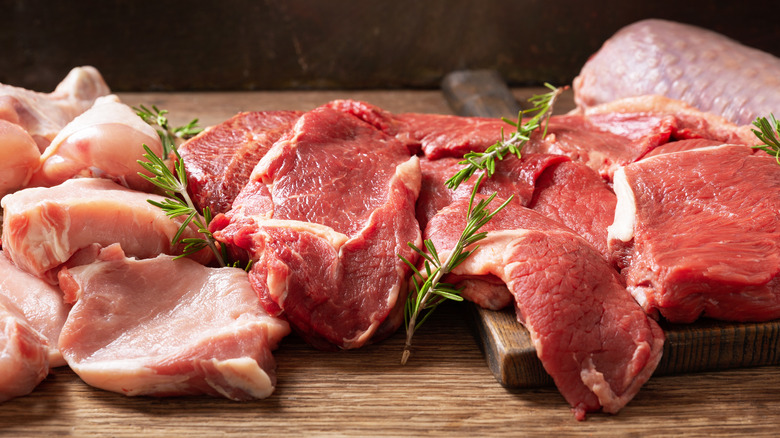Does The Bible Say It's A Sin To Eat Meat?
Sales of plant-based foods are booming in the United States, achieving the incredible figure of $7 billion, according to Livekindly. And while that may be due, at least in part, to the many health benefits they offer (via Everyday Health), there is also internal conflict for some when it comes to the morality of eating meat. Although one might assume that a definitive answer regarding whether or not eating meat is an actual sin can be found in The Bible, the obvious source for clarification among practicing Christians, the answer is far from forthcoming.
Christianity notes that readers of the Bible will often have many questions about its guidance on eating meat because its descriptions can often be vague and varied. This can create confusion about the meat-eating obligations they are supposed to follow, as exemplified by a question in Daily Pilot that wonders whether eating meat would be viewed as a crime by God. Fortunately for the devout, Bible researchers have offered chunks of explanations.
Although frowned upon, the Bible does not ban meat-eating
PETA argues that the Bible showcases God's disapproval of eating meat, explaining that plants were provided as food for every living being and that people who chose to eat vegetables over other food choices became physically healthier. On the other hand, Romans 14:2 reads, "One person's faith allows them to eat anything, but another, whose faith is weak, eats only vegetables" (via Bible Hub).
Daily Pilot reports that while the Bible recommends eating plant-based foods instead of meat, it does not specifically prohibit it. According to the analysis, the Bible offers contradictory information on meat-eating throughout, with Jesus feeding fish to 5,000 but advising that animals should be treated with care.
Christianity notes that the Levitical law outlined specific foods that people could not eat, including pork, but also states that the Bible's food requirements became less strict as it progressed. Ultimately, this now means that people are permitted by the Bible to eat and drink what they like to suit their own dietary needs.

